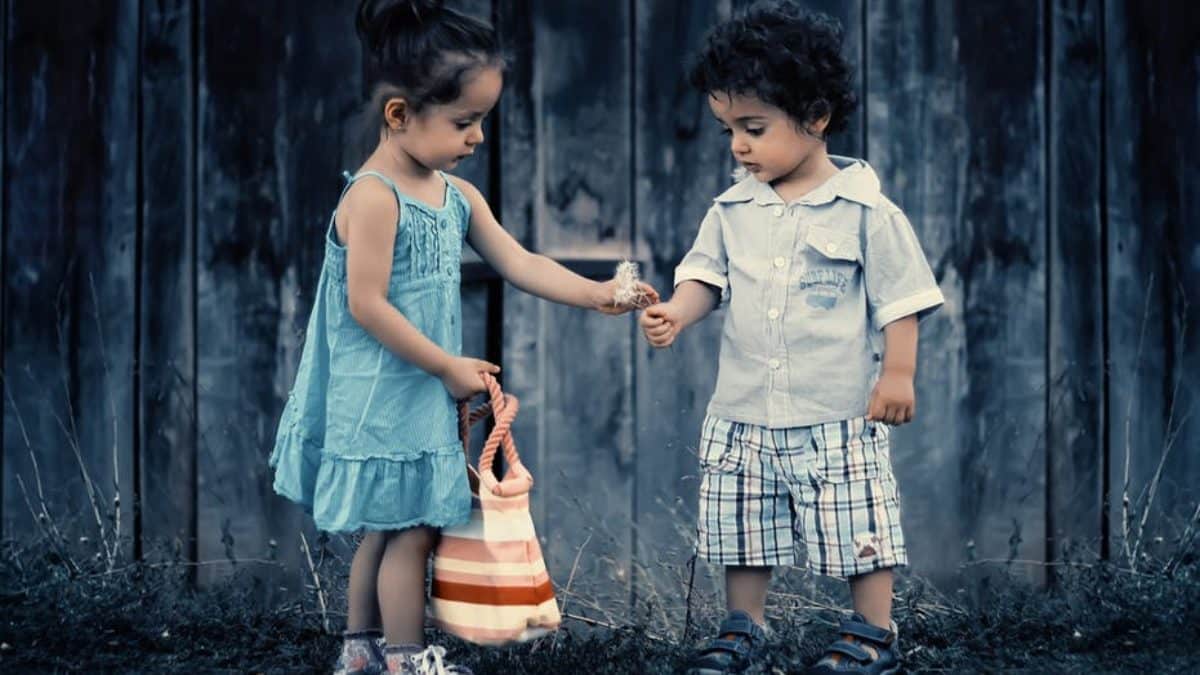Ways to teach your child to care about others who have less
I have come to realize that children are always kind-hearted. They are considerate when it comes to sharing what they have with others. This allows some of them to have more friends because of this attitude. But do you know that these children are not the same? Should we say it\’s an attitude they inherited from the parents? Absolutely, not at that age. They are still young to imitate that. But they learn as they grow.
Since children are sometimes unpredictable, you can still teach them to care for others who have less. If they have this trait already in them, teaching them can strengthen it the more. Therefore, when it comes to caring, you are your child\’s main teacher. Like several other things, caring about others who have less is a quality that children learn over time and practice.
Caring about others who have less goes a long way. The ability to understand another person\’s needs or feelings develops with time. At times, your child may try to comfort a crying playmate by offering sweets or biscuits. He or She develops this from the comfort the mother offers at her crying moment. This is, in turn, transferred to another child.
How can you teach your child to care about others who have less?
The following suggestions will assist you in teaching your child about being compassionate and goodhearted. This act of kindness can be applied at home, in the classroom, or after school program. They include:
- Model positive action: as a mother, you are your child\’s role model, and he or she will imbibe most of what they see you doing. Let them catch you in the act of kindness because what you say or do is very critical to their development.
- Train your child to always pay attention to people\’s facial expressions and voice tone: it is a way to understand other people\’s body language and perspectives. When we make our kids understand someone else\’s point of view, they will attend to such needs without conflicts.
- Let your child know that how they treat others matters to you a lot: it goes a long way because they will always want to do what will make you happy. Endeavor to always reward them for such an act to encourage them to keep it up.
- Use kind words and smiles: let your kids see you use kind words to people. It may be when you go out on a shopping; a simple \”have a nice day\” to the waitress speaks something to the child. Several of these attitudes can be done to your neighbors at home or friends at the workplace, where your kids will be aware of this act.
- Guard against spoiling your kid: if you want to teach your kids to care about others, make sure you don\’t spoil them. Kind children are charitable, know their parent\’s capacity in meeting their needs, and do not complain even when they do not get what they want at the moment. Kids like this are patient, thankful, and have self-control.
- Guard against bullying and cyberbullying: as a parent, you should learn about bullying and ensure to prevent and stop it at all costs. Be aware of the dangers of cyberbullying and the effects on the affected kids. You need to be vigilant about what your kid sees and read online and keep close tabs on what they are writing and sharing. Always inform them to desist from bullying in any form, and they should report if they notice one of their friends is being bullied.
- Always be kind to your child as kindness is contagious: always try to speak sweet words to your kid and those around you even if you are tired or frustrated. Learn to discipline with love, support them when they are down, and be kind as well. If your kid can imitate your act of kindness, they set examples for other kids that can spread to their social groups. Being kind makes a child feel good. Children will feel better about themselves and their world when kindness is encouraged. This will help them grow to be a happy and loving person.
- Show your child how to help people in need: you can always encourage your kid to contribute to charity by donating some of their outgrown toys. He or she can also help you make cookies for the less privileged homes or come with you when you visit someone in the nursing home.
- Do not overdo it: over-praising can be a distraction. Do not encourage lavishing too much praise on your child for a fairly ordinary task. Teach them not to always expect compliments at all times and even for small accomplishments. This might get in the way of their thinking about other people\’s needs.
- Volunteer: you can allow them to volunteer or follow you for volunteering works. When kids are exposed to other people\’s sufferings, they feel grateful for what they have. It also helps them to be proud of being able to help someone.
What are the benefits of helping your child to develop empathy for others?
When you make your kids understand what others are feeling, the impact of their actions on others and why someone might be experiencing some kind of feelings at the moment will lead to the development of a valuable skill for them. Helping them to develop this caring attitude is essential in so many ways because:
- It promotes good mental health.
- It promotes social harmony and reduces the likelihood of bullying.
- It encourages tolerance and acceptance of others.
- It builds a sense of security in children.
- It strengthens relationships with other children.
- It positions them for learning well.
- It increases the overall level of happiness.
- It increases the ability to understand others.




